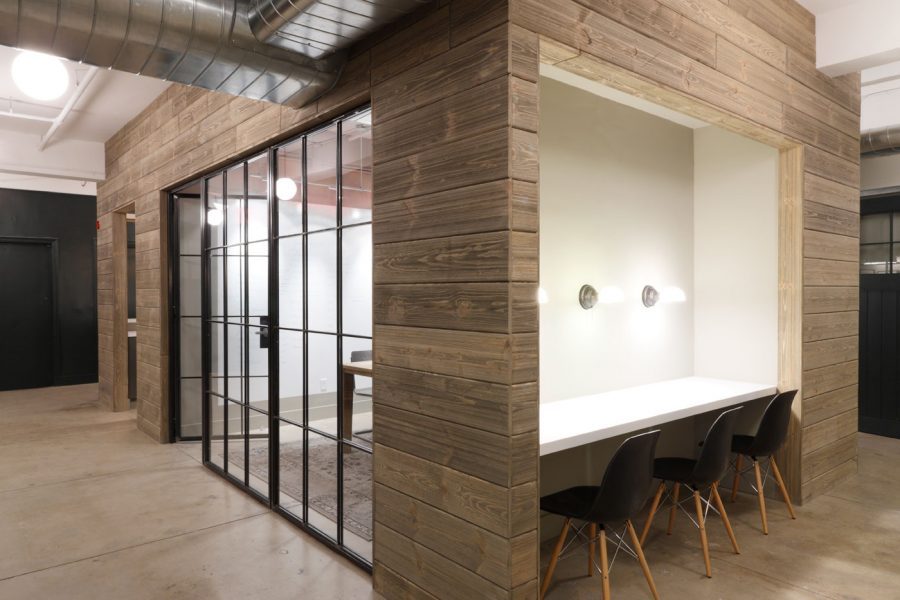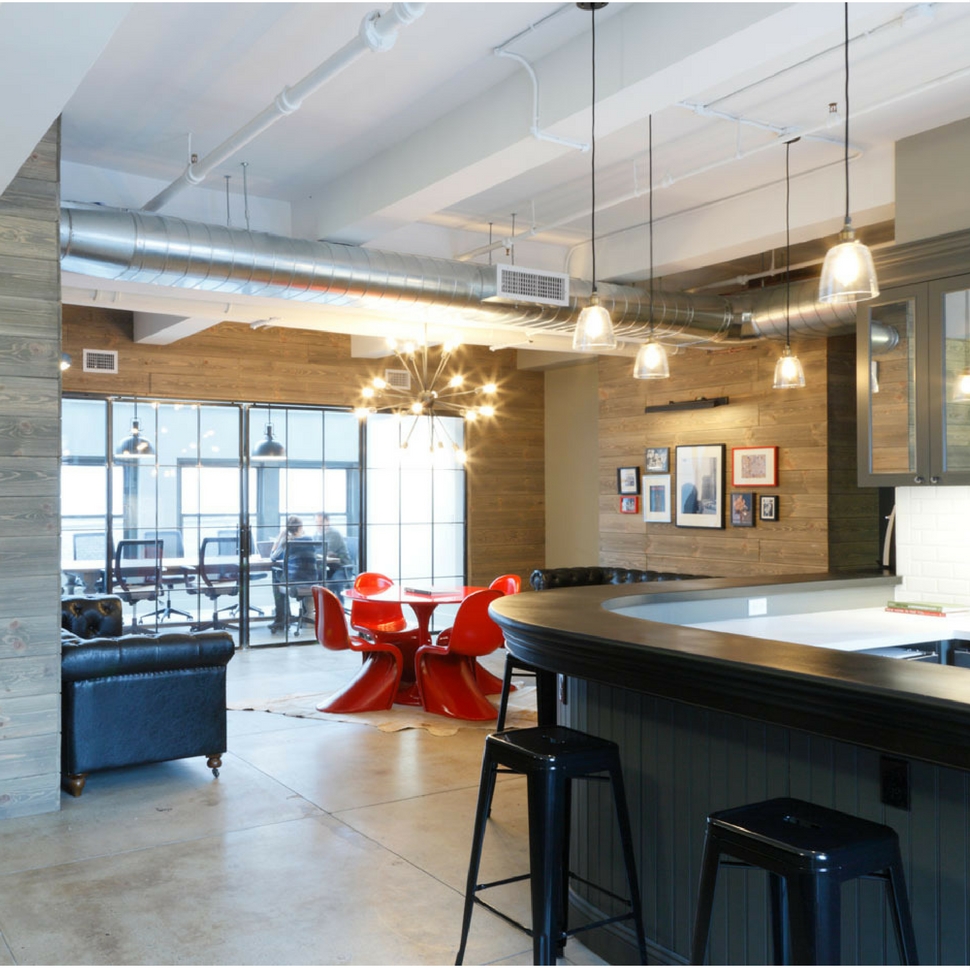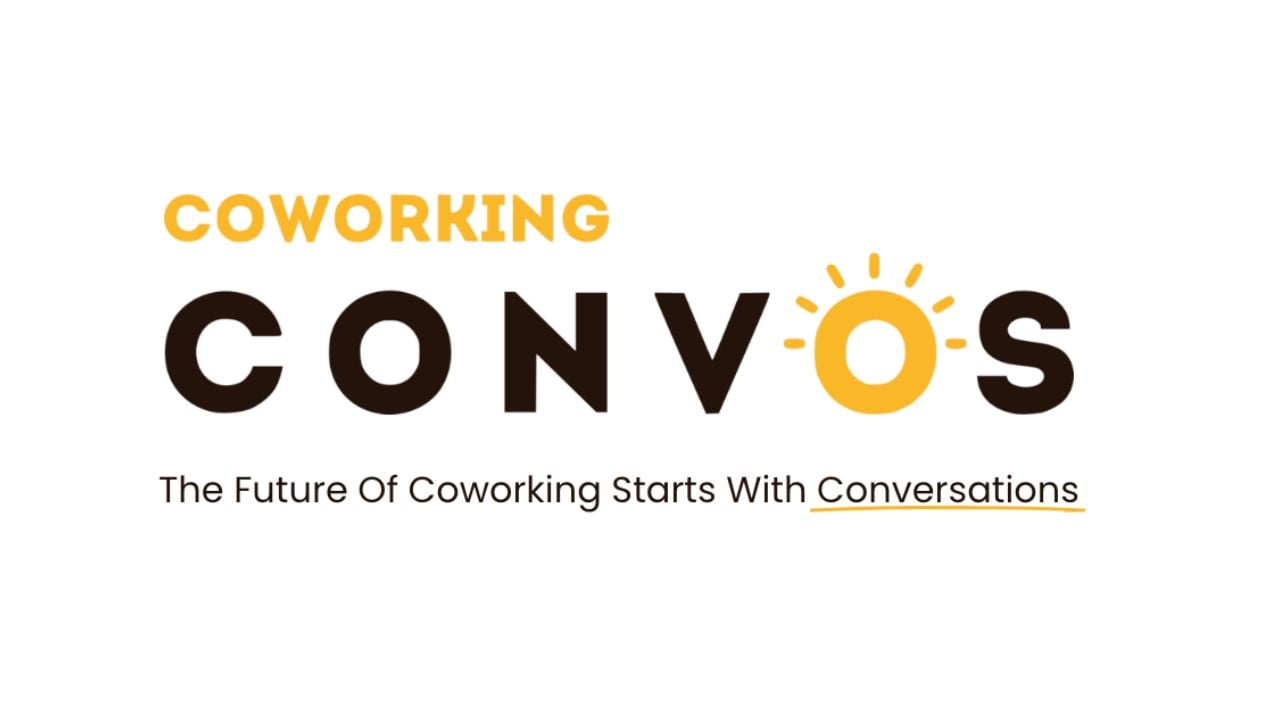Debra Larsen is the original founder of TechSpace, one of the first modern-day ‘coworking’ spaces and one that pioneered the cool and funky feel of these types of workspaces.
“I had been a commercial real estate broker in New York City for about 7 to 8 years before deciding to develop in 1997 what is known today as TechSpace. It was really the beginning of the dotcom and internet era, people were starting startups.”
Debra was a specialist in the creative areas. A significant amount of her clients, therefore, where tech companies that were just beginning to get on their feet. Back in ‘97, Debra tells us the ‘creative areas’ of NYC were mostly confined to the Soho and Midtown areas. And because online listings weren’t as common then as they are now, people needed to have knowledge of buildings in order to make an informed decision about renting office space.
“I had many tech-y clients come up to me and say, ‘Deb, you’re in real estate, help us find a cool and funky looking space in a location where I don’t need to have a lot of credit to be approved.”
“They had a very idealistic idea of the type of space they could get.”
“I even told them that in order to set up in a great location and not worry about the credit, that they should go set up in more traditional flexible workspaces. Back then Regus didn’t exist in NYC, I often referred them to HQ.”
As the dotcom era and the internet began to take off, more tech companies were looking for workspace that they could identify with.
“Shared space in those days was something you didn’t want. It was really about just having a prestigious address; the spaces were very corporate looking, stale, and boring. They never worked and appealed for companies working in tech or the internet.”
[ezcol_1half] [/ezcol_1half] [ezcol_1half_end]
[/ezcol_1half] [ezcol_1half_end] [/ezcol_1half_end]
[/ezcol_1half_end]
Images via WorkHouse NYC
The Birth of TechSpace
“After hearing of various friends and companies looking for these cool and funky spaces, I started to think someone should go and build a workspace like this.”
Crazily enough, Debra thought of pitching the idea to HQ and other similar companies at the time. “Then I thought they will probably not get it right, so I decided against it.”
Around that time, a friend of Debra came up to her with a requirement of 250,000 sq ft for his tech company.
“I pitched him the idea of TechSpace and he became my first co-founder.”
Fast-forward some months, and Debra and her co-founder had already raised enough money to take a lease in Union Square…the perfect location, right?
Back then, “no one was in Union Square.” But it didn’t matter. Debra tells us she was able to fill up the space with several tech companies before even finishing raising funds for the construction.
The Design
“The first TechSpace that I built had a lot of cool, funky, different-shaped offices. It also had some internal, private offices; but generally speaking, it was the first space to really be a coworking space. At the time, people really didn’t rent desk space as much, so it didn’t make sense to have much of that.”
“Nothing like this had existed. We got a lot of attention.”
“Even back then, I thought that it wasn’t just a trend. I really thought then that that’s how office space should be like. People are not satisfied with plain spaces, this is the way it should be.”
It was disruptive. It was innovative. It was creative. It was in line with the dotcom bubble.
Debra raised enough money and obtained venture capital that helped her expand outside of NYC. “We built in Boston, San Francisco, Austin, Miami…..and then….the dotcom bubble burst.”
Ahead of Its Time

“When the bubble burst, our venture capital dissolved. I sold the company to a California-based company, Infrastructure in 2001.”
“One of the things I always say about TechSpace is that we were ahead of our time. We were still educating the market that shared workspace was a desirable thing.”
Debra was a visionary and a pioneer. She might’ve been too early to disrupt the workplace before, but she isn’t now.
“The industry is becoming much more mainstream, which is attracting mainstream established companies.”
Six years ago, Debra helped put together Space530, a flexible workspace and showroom option for fashion brands and companies.
Four years ago, she started WorkHouse, a hybrid between coworking and pre-built serviced office suites. “WorkHouse is much more akin to my thinking; for me it’s not just about having a floor in a building but having an entire building operating as a flexible workspace.”
If WorkHouse has been slow to expand compared to its competitors, there’s a reason for it. According to Debra, she didn’t raise a lot of venture capital this time and she would much rather own the property than lease it. This may be a novel approach for some operators, but not all.
Back in the ‘90s, Debra was the first with coworking. In much the same way as coworking serves its members, Debra herself has benefited from shared knowledge and experiences – and having learned valuable lessons along the way, she is now laying foundations to develop a stronger and more sustainable workspace model.
What’s not to say this time around she will be the first to implement a new workspace operation and management model, particularly as more landlords are likely to join the industry and begin operating their own buildings as serviced workspaces.

 Dr. Gleb Tsipursky – The Office Whisperer
Dr. Gleb Tsipursky – The Office Whisperer Cat Johnson – Coworking Marketing Maven
Cat Johnson – Coworking Marketing Maven Angela Howard – Culture Expert
Angela Howard – Culture Expert Drew Jones – Design & Innovation
Drew Jones – Design & Innovation Andrea Pirrotti-Dranchak – Competitive Advantage
Andrea Pirrotti-Dranchak – Competitive Advantage Jonathan Price – CRE & Flex Expert
Jonathan Price – CRE & Flex Expert Jeremy Fennema – Tech Innovation Alchemist
Jeremy Fennema – Tech Innovation Alchemist











